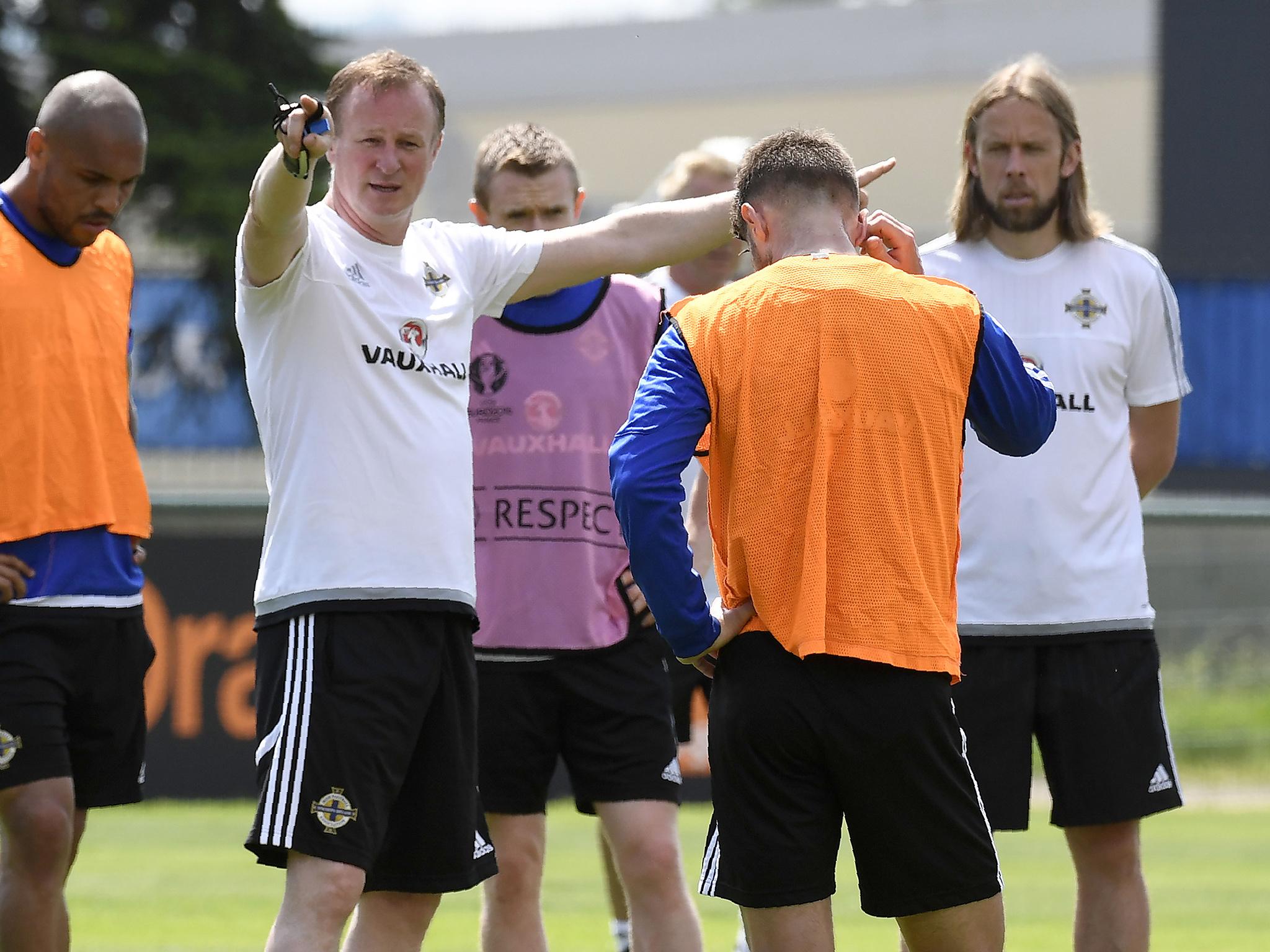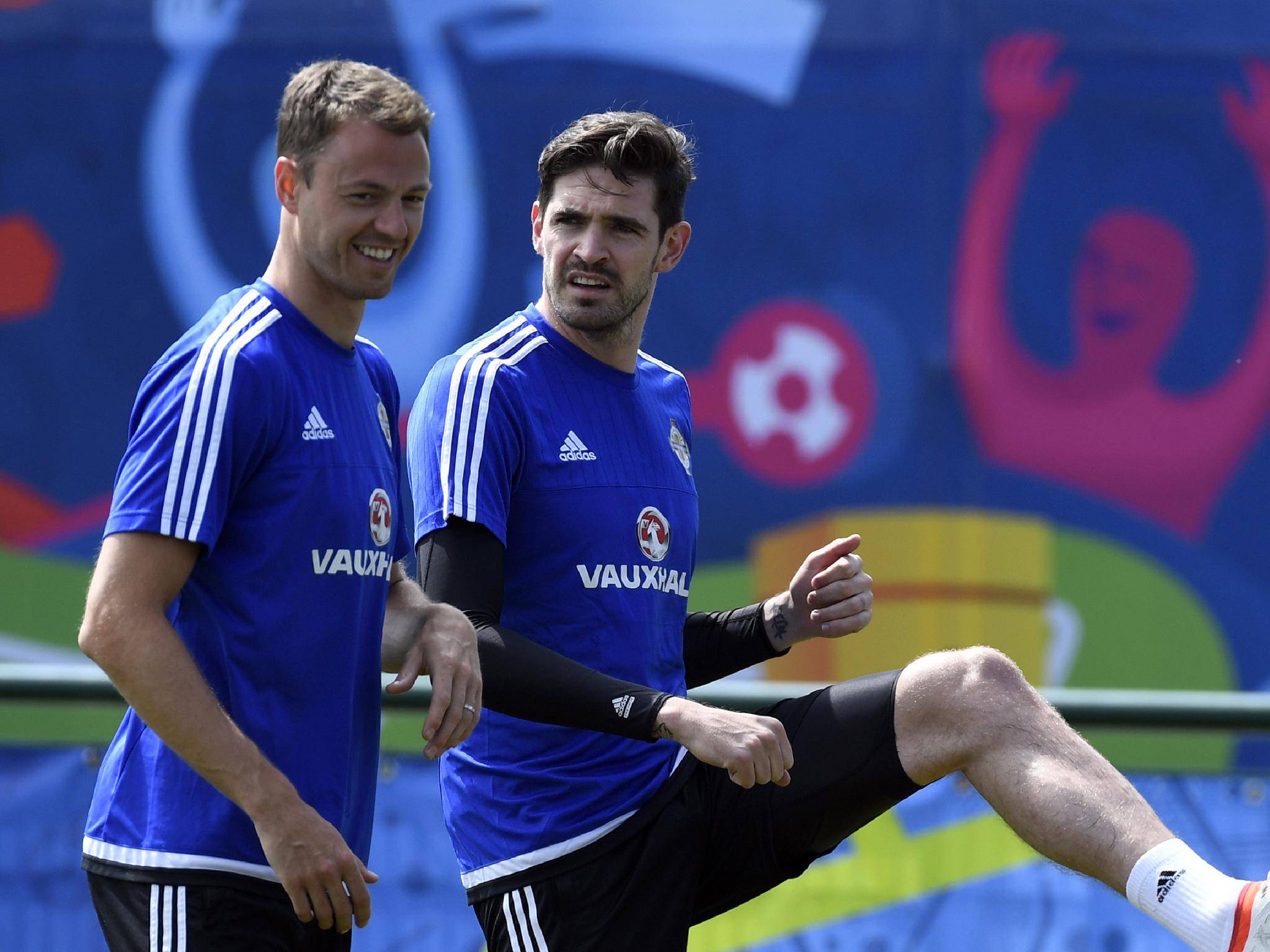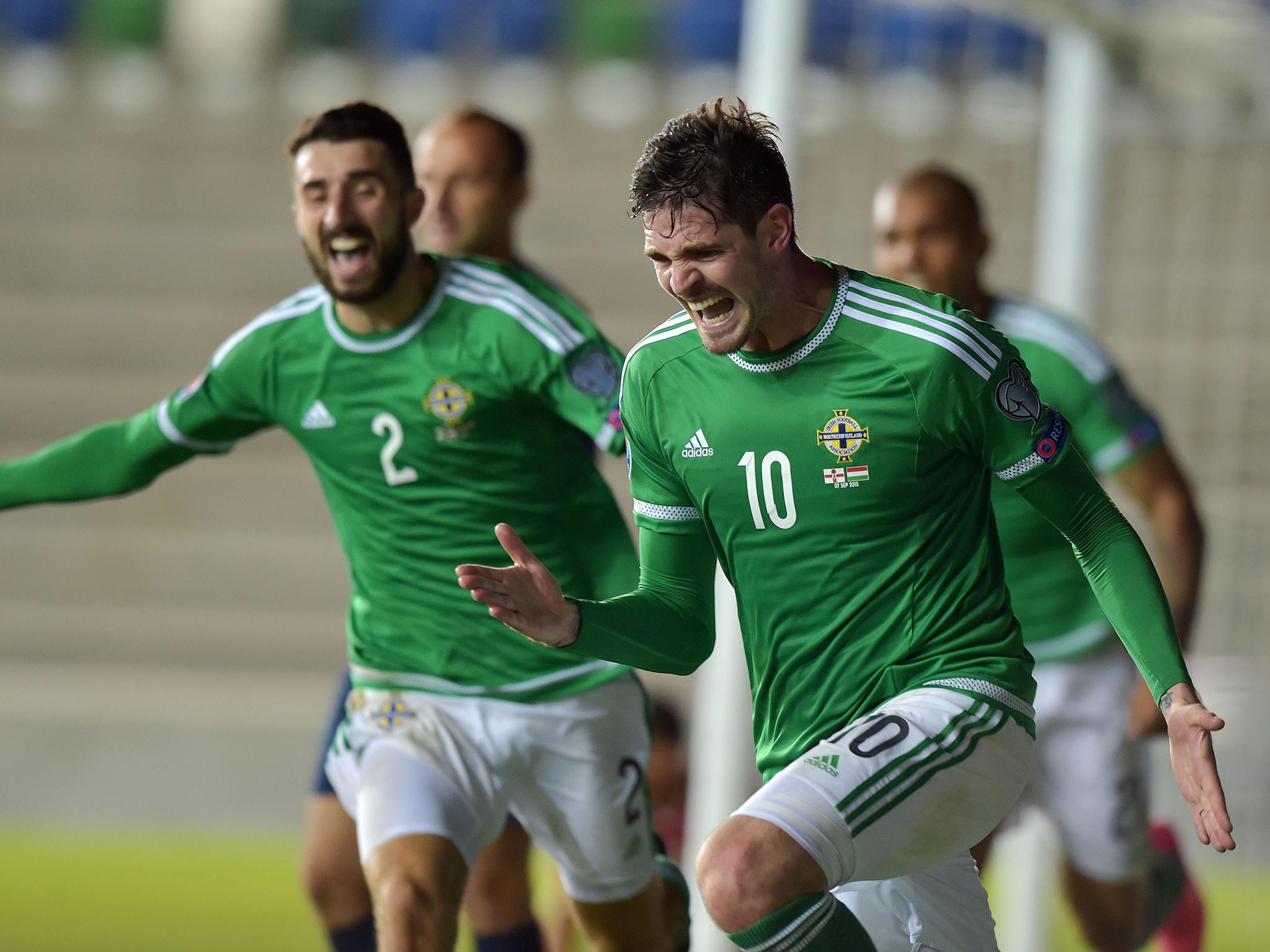Euro 2016: How Michael O'Neill's 'positive vibes' have transformed Northern Ireland
The Portadown-born coach has seen his side ride in to France on a wave of optimism. How far can it carry them?

For many coaches at Euro 2016, management means presiding over a vast network of support staff and delegated power, perched at the top of a structure of specialists. But not for Michael O’Neill and Northern Ireland.
O’Neill has done an excellent job coaching Northern Ireland to their first major tournament since 1986. But his work is far broader even than that. O’Neill oversees the Northern Irish youth system, knows all the country’s best prospects down to under-14s level and tries to find new clubs for players who have been released.
And when Northern Ireland confirmed qualification by beating Greece in October, O’Neill and IFA operations manager David Currie were straight down to France, driving around trying to find a base that fitted their requirements, and their budget.
“It was a bit of a back-packing journey,” jokes O’Neill, describing his preparations to The Independent before taking his team to France. “As soon as qualification was achieved, two weeks later we were in France, driving around looking at bases, trying to find somewhere that would be suitable for us. We were conscious at the time that not everyone had qualified, so we were trying to get a march on the other countries.”
“There were a lot of [potential bases] that you can put a cross through, because of the cost attached to them, for an association like ours,” O’Neill admits. “We found what we felt were the best options based on the budget that we had. Then it was very hands-on, and we went and saw them.”
That is how Northern Ireland have ended up in Saint Georges de Reneins, a village in Beaujolais country, 40km north of Lyon. Northern Ireland’s second game, against Ukraine next Thursday, is at the city’s new Stade des Lumieres. “We liked the base,” O’Neill says, “and it limits any upheaval.”
This type of work, the nuts and bolts of background preparation, is simply what you have to do if you are trying to take a football country like Northern Ireland into a tournament like this. And O’Neill revels in it.
“Being a manager of a smaller country is, in many ways, like being a manager at a smaller club,” O’Neill explains. “You have fewer staff obviously. And you have to make all those decisions yourself, about logistics and travel. It is part of the job, and it is a part that I enjoy. It does alleviate a level of the boredom that sometimes other managers talk about when they’re in this type of job.”
This is why O’Neill is so important to football in Northern Ireland and why he has been so successful. The expansion of the Euros to 24 teams has helped other smaller nations to make it, with Wales, Iceland and Albania all qualifying having finished second in their respective groups. And yet Northern Ireland did better than any of them, having won Group F outright. Had this been a 16-team tournament they would have made it too.
All of this was achieved with a squad which is not exactly crammed with quality and experience. There are just four current Premier League regulars – Steven Davis, Jonny Evans, Gareth McAuley and Craig Cathcart – in the 23 men O’Neill has picked, although there would have been five had Chris Brunt not suffered a cruel knee injury in March. O’Neill does not try to make the squad look better than it is. “When I look at the squad of players, there are times that I look at it and think that we need more players,” he admits. “It is as simple as that.”

So the fact that Northern Ireland did what they did, leading from the front and sealing their place in their penultimate game, makes it the achievement that it is. O’Neill has not radically changed the players that were there when he replaced Nigel Worthington four years ago, nor has a new generation come through. It is a success of management – coaching and motivation – instead.
O’Neill initially puts the success down to “perseverance” and then to “creating a positive vibe around the team”. Northern Ireland won their first three qualifiers which gave them the momentum to stay on top on the group. “Everything has to be positive,” he says, “having a positive vibe around the team has been the biggest change.”
That has been helped by the support of Northern Ireland’s other celebrity sportsmen, Rory McIllroy and Carl Frampton, both regular attendees at games but also at the team hotel, doing Q&A sessions with the players and posing for selfies. McIlroy is planning to follow Northern Ireland at the Euros, and it is no coincidence that he is playing the Open de France at the end of this month.
What we have managed to do in this campaign is to get players to play above themselves, to a level that maybe they didn’t think they were capable of
But for Northern Ireland to get into that position they had to win those three matches in the first place and they did so playing efficient purposeful football. Beneath O’Neill’s matey exterior there is a sharp intelligence – tested not just in football but in business too – and he has set this team up to make the very most of their talents.
“What we have managed to do in this campaign is to get players to play above themselves, to a level that maybe they didn’t think they were capable of,” O’Neill says. There is a comparison to be drawn with the Premier League champions. “Leicester have brought unknown players from abroad, players who have worked their way up, whose careers have not just been on an upward curve. We are not dissimilar to that. We bring players from League One, we put them on the international stage and they are able to deal with it.”
Most international teams are less than the sum of their parts but not Northern Ireland, who have found a system that suits their players. Like Leicester, they do not see much of the ball but that is part of the plan.
“As a coach, you have to ask which team is going to have more of the ball, and if you are open and honest with yourself, the opposition are going to have more of the ball. If you try to meet that head-on with possession, you will come unstuck, more often than not.”
So the key is to teach the players that they do not need the ball to win the game, that they are better off holding their positions and waiting for the opposition to make a mistake. “You have to get the players in the frame of mind where they accept that,” O’Neill says. “When you don’t have the ball it doesn’t necessarily mean that you’re not playing well. That is a mental thing for players. Players want touches of the ball, as when they don’t, they think they’re not having an impact on the game. Over the 10 qualification games, we had the second lowest possession in the group. Only the Faeroe Islands had less possession than us. Yet we were the top scorers. That is what the game is about.”
That is certainly the direction that football is going in, as anyone who has watched Leicester or Atletico Madrid this season can see. Possession is not always efficient, and it is not always entertaining either. “It is very easy to be swayed when you see a team like Barcelona play, but if you don’t have those players you can’t do it,” says O’Neill. “Teams are looking at different ways to win. And at the end of the day, Leicester are exciting to watch. I don’t think your average fan wants to see the ball passed around the middle of the pitch the way certain teams do. Barcelona are fantastic to watch, but at times the games are a bit boring. If you turn up and it’s inevitable your team is going to win, then it loses a bit of its edge.”

This explains why Northern Ireland get so much out of Kyle Lafferty, a man who has scored four goals in his last two club seasons, spent at Norwich City, Birmingham City and Caykur Rizespor. “Kyle needs the ball early to do well,” O’Neill explains. “Kyle maybe wouldn’t do well in a team that was heavily possession-based. If you have that kind of player, you have to play to his strengths. My philosophy is to get the most from the players I have.”
O’Neill has certainly done that and by reaching France he has done more for Northern Irish football than anyone expected. But that was not his initial goal when he left Shamrock Rovers and replaced Worthington. “My main focus was not that I had to qualify for a major tournament,” he reflects. “My main focus was whether I could leave the association in a better place than I found it. So the next person, whoever that may be, has something better to work from.”
That is near enough to the definition of “legacy” but O’Neill is “not comfortable” with using that word to describe his work. What he does talk about is culture, structure and processes. That, ultimately, is how he has turned this team around. He puts it down in part to his non-football experience, his years working as a financial advisor for Ernst and Young after retiring from playing at 35.
“It was a big challenge, to come out of the football environment and suddenly be in an office environment,” O’Neill recalls. “It gave me a lot of skills that I think I have put to good use in management. You are dealing with people all the time. I was 35, and I was working with 22-year-olds. Nothing like that can be a negative experience when you bring it back into football.”
O’Neill points to the leadership seminars Ernst and Young put on, and their approach to project management, as helping to form his approach to the game that he returned to game as manager of Brechin City two years later.
“Football is always measured by results on the pitch, but sometimes a lot of good things are done [away from that],” he says. “Had I left the Northern Ireland job after two years, I felt the team was in a far better place than where I had found it. The main thing is to take something that isn’t doing well, to take it somewhere where suddenly it starts to thrive. That is the real thrill.”
Join our commenting forum
Join thought-provoking conversations, follow other Independent readers and see their replies
Comments
Bookmark popover
Removed from bookmarks